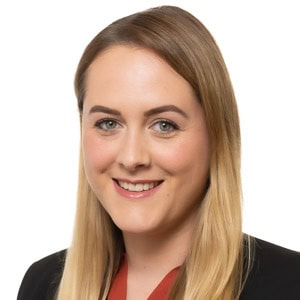Failings in the investigation and prosecution of fatal road traffic accidents
In 2015 the Crown Prosecution Service (CPS) and the Police, in a Criminal Justice Joint Inspection report, highlighted their failings in the prosecution of fatal road traffic accidents. At the time the Chief Inspector of the CPS stated that specialist prosecutors were needed to deal with such failings.
At Bolt Burdon Kemp, we represent individuals who have suffered a serious injury as a result of a road traffic accident, as well as the families of those who are fatally injured. In 2019, there were 1,870 reported fatalities on Great Britain’s roads; an average of around five fatalities per day. Whilst Great Britain has one of the best road safety records in the world, this is still a significant number.
It is important therefore that such accidents are afforded a thorough, in depth investigation, and are dealt with by all involved with sensitivity to what is an incredibly difficult situation. Unfortunately, in my experience of working with families following a fatal accident, this is not the case. Whilst I agree that specially trained prosecutors would assist in bringing those responsible for fatal road accidents to justice, this may be too late in the process and as yet appears not to have been widely implemented. The changes need to be made on the front line, starting with the police investigation.
Police investigation into fatal road accidents
Following a serious accident, it is common for the police to be one of the first to arrive at the accident location. Their role is to secure the accident scene, ensure that medical practitioners can gain access to the injured person and to preserve and collect evidence for use in any prosecution. Unfortunately, from my experience, there is little consistency in police investigations and often the police report is simply a form filling exercise rather than a real investigation. Indeed, from my perspective it often appears as though the form has actually been completed in an effort to avoid having to pursue a prosecution, rather than to get to the facts of what happened. Examples of some of the difficulties that I have experienced are:
- Long delays in preparing and providing copies of the police report
- Documents missing from the police report
- Witnesses not being interviewed at all, or if they are, statements not being prepared for them
- CCTV evidence being obtained from the wrong day, wrong location, or failing to be obtained at all
- Collision reports not being prepared
- Officer’s making personal comments/assumptions which are at odds with comments made by witnesses
The Metropolitan Police have very high caseloads and do not have the capacity to investigate all accidents. Indeed, officers are retiring and not being replaced. In cases where a collision report has not been prepared, it is possible to commission a report from the collision investigator, but this will cost in excess of £3,000. Surely, this should be a standard part of the criminal investigation and not something to be funded as part of a civil claim. It is concerning that the CPS are expected to prosecute dangerous drivers in situations where a collision report has not been prepared.
In my experience, bereaved families are often given little information as to the police investigation and are not regularly kept informed. In fact, many of my clients have expressed their wish to make formal complaints against the police for their failure to investigate the accident properly. I consider that as well as having specialist prosecutors at the CPS, police officers should be given additional training if they are to deal with fatal road accidents. The families left behind following a fatal accident are coming to terms with their loss. The police investigation, inquest and criminal proceedings will usually be unfamiliar to them and so cause additional stress in what is already an extremely difficult situation. A thorough investigation into the circumstances of the accident as well as a sensitive approach would surely make the process easier for families to cope with.
Once I am instructed following a fatal accident personal injury claim, I am able to provide the family with support throughout the police investigation, any inquest that is held and any subsequent criminal proceedings. My role will be to take the burden of the process away from the family. The difficulty for me as a personal injury solicitor is that we are not able to apply for copies of any of the documents held by the police until their investigation has concluded. If there is a prosecution, I cannot apply for a copy of the police report until the criminal proceedings have concluded. A substandard investigation by the police can therefore be prejudicial to any civil claim, as by the time I am able to see what information the police have obtained, any evidence that may have been available at the time may no longer exist.
Families of those fatally injured in a road traffic accident rely on the CPS and the police to bring the wrongdoer to justice. I wholeheartedly agree that the CPS and the police are failing in this regard and that something needs to be done to reform the way in which these cases are dealt with. Specialist prosecutors would certainly be a step in the right direction and I can only hope that the police will follow the lead of the CPS in reforming their investigative approach.










